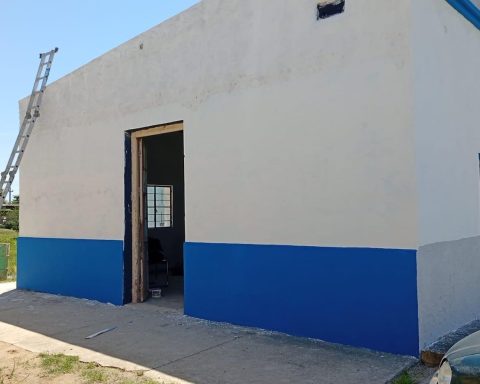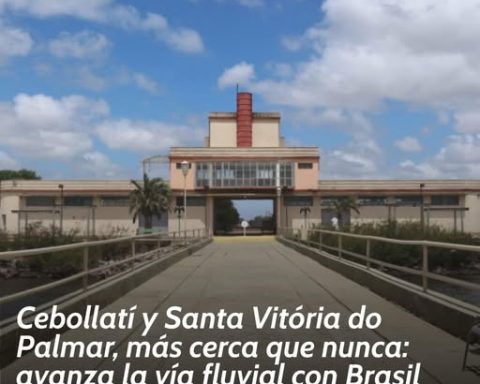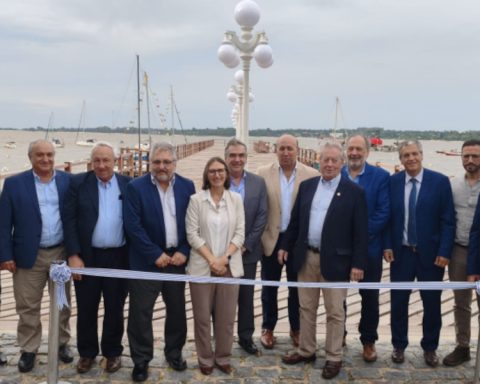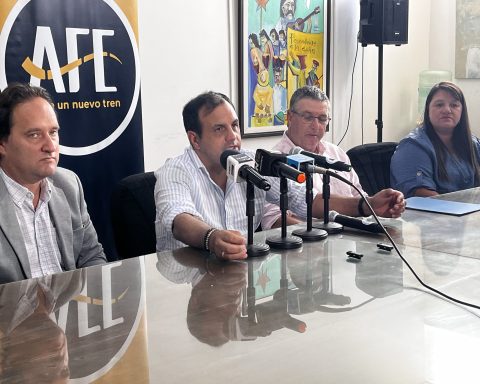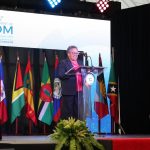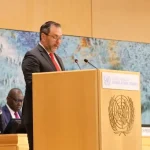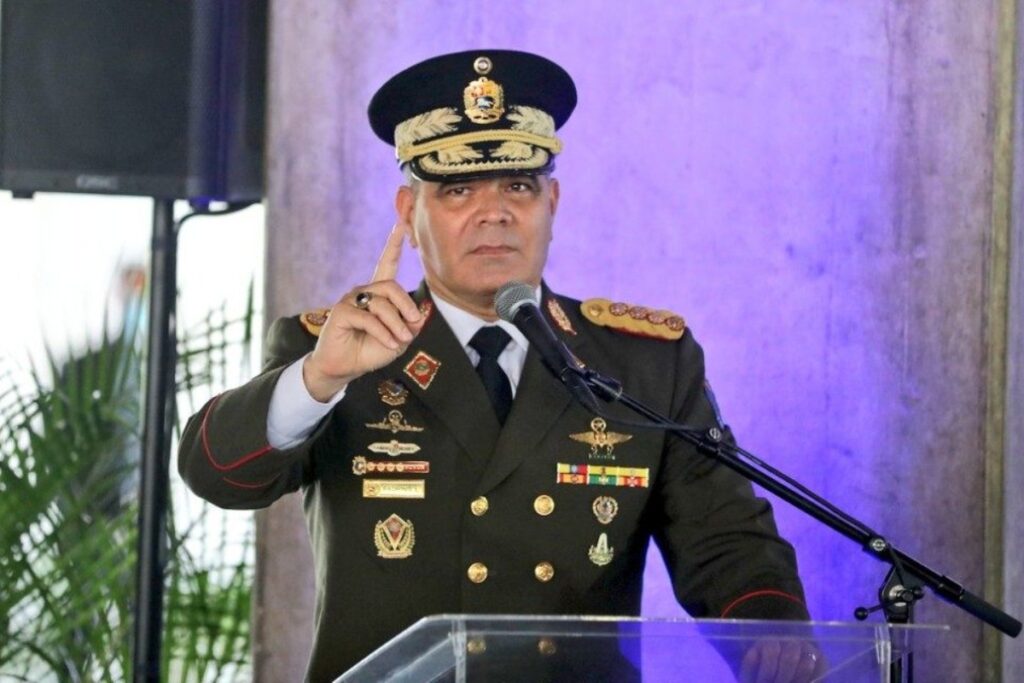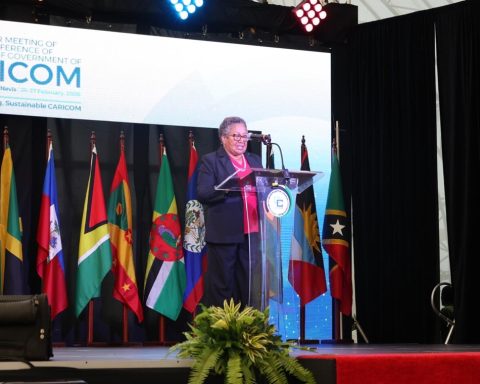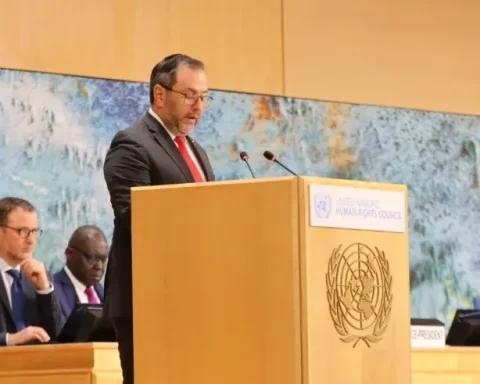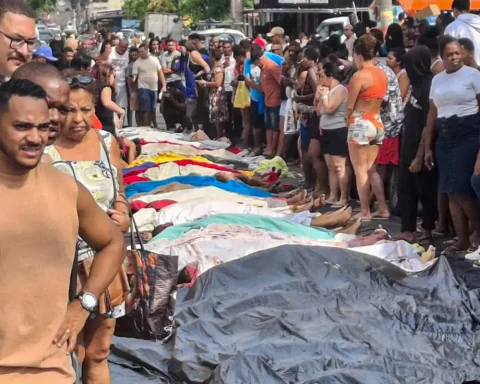“One important thing in life is that some goals are to the end.”
Martín Lasarte Topolanski arrived in Angola in 1990 as a missionary, when the civil war was already 15 years old and would last 12 more.
At that time, they sent him to the province of Moxico.
“There were continuous bombardments. It was mined around the city,” the Uruguayan priest told The Observer. “It was a place where there was a lot of difficulty. I remember. We ate once a day. A soup, that was our diet in wartime. And well, We were present to accompany the population”.
After some time, and already ordained a priest, he traveled to Rome, where he obtained, in 1995, a degree in Sacred Scripture. So, she returned to Angola. She spent “many years” in the capital, Luanda, until she returned to Moxico.
“It was a very nice job because the end of the war touched me. We worked a lot with refugees, with those displaced by war and later with ex-military personnel,” he explains. The work with the ex-military implied training them for their reintegration into civil society after a war that began in 1975 —with independence from Portugal— and ended in 2002.
“Many people had been left in the war without the possibility of studying,” so they did “re-education” and “literacy” tasks. In addition, they had to develop a network of social services, health, water wells.
Fairly It was in the province of Moxico where the war ended. The guerrilla chief died there, Jonas Savimbi.
The capital of this province is Luena; city of which Lasarte is bishopsince this Saturday, July 1, when at the age of 60 he was named by Pope Francis.
Salesians in Angola
Lasarte is a Salesian priest. The congregation has “a very large presence” in the African country. The Salesians, who are in 43 countries on the continent, arrived in Angola in 1981.
Now there are about 160 there “with an average age of 33 years,” says Lasarte. The majority are already “young Angolans who little by little they are assuming this responsibility of the mission of evangelization and education”, Explain.
The congregation attends to “more than 70 thousand young people” in schools –some with more than 5 thousand students–, primary, secondary, university education; as well as in reception and follow-up centers for “vulnerable street children”; vocational training courses for young people to enter “the world of work”; parishes and youth centers, lists Lasarte.
Until this Saturday, the priest was the Superior of the Salesian Vice Province of Angola. He will have to travel from the capital of the country, Luana, again to Moxico.
It is one of the most needy areas of Angola, with problems of education, health, infrastructure. Lasarte points out that from the missionary point of view it has “an enormous shortage of personnel, very few priests in a vast area of 220 thousand km2“, where “Uruguay enters almost twice.”
Lasarte began his mission there and is now the new bishop.
The letter to The New York Times
In 2010, the Salesian priest sent a letter to the American newspaper The New York Times. There he commented to an editor on the “positive things of the Church” in order to place the news about the institution in “the general context of the whole”.
“The pedophilia problem that is being talked about is something very sad, real, true. You have to face it. The Church has to assume its responsibilities”, says Lasarte. However, for the priest, “It is not just a problem of the Church, it is a transversal problem of society.”
“I think that your means of information don’t care that I had to transport many malnourished children from Cangumbe to Lwena on mined roads in 2002 (Angola) because neither the government was available and the NGOs were not authorized; who has had to bury dozens of small deceased among those displaced by war and returnees; that we have saved the lives of thousands of people in Moxico through the only medical post in 90,000 square kilometers, as well as with the distribution of food and seeds; that we have given the opportunity of education in these 10 years and schools to more than 110,000 children…”, says the letter, as translated in the Spanish website Catholic.net.
“It is not news that my friend, Father Marcos Aurelio, for saving some young people during the war in Angola, has transported them from Kalulo to Dondo and returning to his mission, he has been machine-gunned on the way; that brother Francisco, with five catechist ladies, for going to help the most remote rural areas have died in a road accident; that dozens of missionaries in Angola have died due to lack of health care, due to simple malaria; that others have been blown up, because of a mine, visiting his people. In the Kalulo cemetery are the tombs of the first priests who came to the region… No one is over 40 years old.”
Since the outlet did not publish that “comment to the editor,” Lasarte sent it to her aunt, she sent it to another person, this person to another, and thus it went viral. came to be translated Chinese, Korean, Polish.
A missionary’s dream
Asked about a scene that he remembers after 30 years in Angola, Lasarte evokes his arrival in a camp for those displaced by the war.
“we were responsible on behalf of the United Nations in food. 4,000 people in one camp, 6,000 in another,” he explains. They gave 26 kg of corn, 5 kg of beans, a little salt and a little oil to each family. It had to last one month for each family of up to eight members.
One day, after the distribution was finished, the missionaries were approached by Chifako, the elderly head of the field.
“Father, we are still hungry here.”
—But you saw that we already distributed everything. We are not like the government that distributes a part —Lasarte argued— No, everything was distributed clearly.
Chifako smiled at him.
—No, father, we are not hungry here —He touched his belly— We are also hungry here —He touched his heart— When does he come to celebrate a mass?
The priest reflects that the task of the missionaries is not that of an NGO or a social action. “It’s much more than that”.
It is not just about meeting the basic needs of people, such as food or education, also the deepest, those that refer to the spirit.
And that is a task that Lasarte wants to work on in Africa until he dies. In an interview with the Salesian Bulletin They asked him if he would return to live in Uruguay.
“We are always in the hands of the Lord, willing to grow where He plants us. Only God knows that. But I wish to become African land”answered.
“A missionary’s dream,” he explains to The Observer, is to go to a place and marry “with the culture and with the land”. “Where we go, we love those people, that community, we integrate, we live”.
“My dream is to be able to live until the end of my days and be buried here”underline.
“In the world we live in, everything is provisional. A very fragile culture that looks at everything from the let’s see what happens tomorrow. And it’s also nice to have a horizon that is forever,” he says.
Because, “an important thing in life is that Some goals are all the way.”
